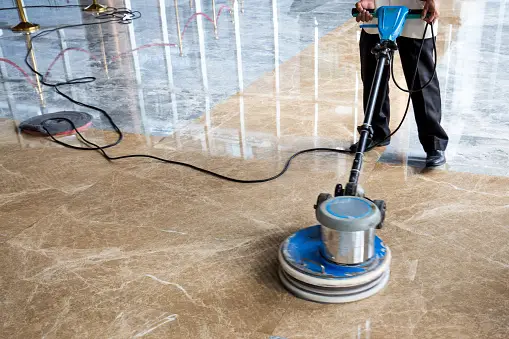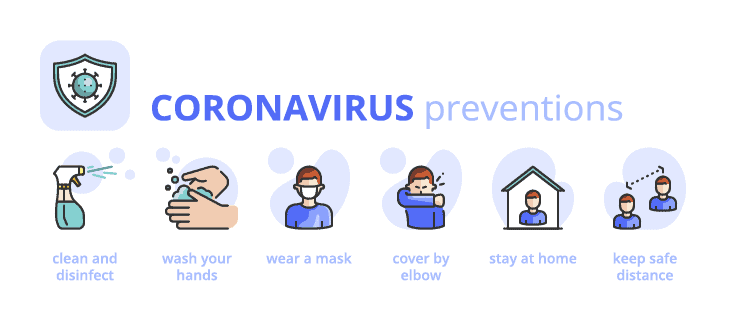
Commercial Kitchen Cleaning: Ensuring Hygiene and Compliance
Date Posted:
March 7, 2024
Introduction to Commercial Kitchen Cleaning
Commercial kitchens are bustling hubs where food is prepared and served to customers. With the high volume of cooking activities, maintaining cleanliness and hygiene is paramount. A clean kitchen not only ensures the safety of the food but also contributes to the overall reputation of the establishment.
Importance of Hygiene in Commercial Kitchens
In the foodservice industry, hygiene is non-negotiable. There are stringent health and safety regulations in place to ensure that commercial kitchens maintain a clean and sanitary environment. Compliance with these regulations not only prevents foodborne illnesses but also protects the reputation of the business.
Health and Safety Regulations
Health departments enforce regulations regarding cleanliness, sanitation, and food handling practices in commercial kitchens. Failure to comply with these regulations can result in fines, closures, and even legal consequences.
Customer Perception
Customers expect clean and hygienic conditions when dining out. A dirty kitchen not only poses health risks but also creates a negative impression of the establishment. Maintaining a clean kitchen is essential for retaining customers and building a positive reputation.
Compliance Requirements for Commercial Kitchen Cleaning
Meeting compliance requirements is essential for operating a commercial kitchen legally and safely. Health codes and food safety standards dictate the level of cleanliness and sanitation that must be maintained at all times.
Local Health Codes
Health codes vary by jurisdiction but typically cover areas such as food storage, preparation surfaces, equipment sanitation, and pest control. Regular inspections are conducted to ensure that kitchens meet these standards.
Food Safety Standards
In addition to health codes, commercial kitchens must adhere to food safety standards set by organizations such as the FDA and USDA. These standards outline best practices for preventing contamination, cross-contact, and foodborne illnesses.
Common Challenges in Commercial Kitchen Cleaning
Despite the importance of cleanliness, commercial kitchens face several challenges when it comes to maintaining a pristine environment.
Grease Build-up
Grease accumulation is a common issue in commercial kitchens, especially around cooking equipment and ventilation systems. Grease build-up not only poses fire hazards but also attracts pests and harbors bacteria.
Equipment Cleaning
Cleaning and sanitizing kitchen equipment is essential for preventing cross-contamination and foodborne illnesses. However, many kitchen staff members lack the proper training and tools to clean equipment effectively.
Staff Training
Proper training is crucial for ensuring that all kitchen staff understand their roles and responsibilities regarding cleanliness and hygiene. Regular training sessions should cover topics such as proper cleaning techniques, chemical safety, and personal hygiene.
Best Practices for Effective Commercial Kitchen Cleaning
To maintain a clean and sanitary kitchen, it’s essential to implement best practices and establish a comprehensive cleaning routine.
Daily Cleaning Checklist
Developing a daily cleaning checklist ensures that essential tasks are completed consistently. This checklist should include tasks such as wiping down surfaces, cleaning floors, sanitizing equipment, and emptying trash bins.
Deep Cleaning Schedule
In addition to daily cleaning tasks, commercial kitchens should schedule regular deep cleaning sessions. Deep cleaning involves thorough cleaning of hard-to-reach areas, equipment maintenance, and sanitization of high-touch surfaces.
Use of Professional Cleaning Services
Outsourcing commercial kitchen cleaning to professional cleaning services can provide several benefits. These services have the expertise, equipment, and resources to ensure that kitchens are cleaned to the highest standards.
Choosing the Right Cleaning Products
Selecting the appropriate cleaning products is essential for effective kitchen cleaning.
Eco-Friendly Options
Many eco-friendly cleaning products are available that are safe for use in commercial kitchens. These products are free from harsh chemicals and toxins, making them safer for both employees and the environment.
Effectiveness against Bacteria and Viruses
In addition to being eco-friendly, cleaning products should be effective against bacteria and viruses. Look for products that are certified to kill common pathogens, including E. coli, Salmonella, and norovirus.
Benefits of Outsourcing Commercial Kitchen Cleaning
Outsourcing commercial kitchen cleaning offers several advantages for businesses.
Time and Cost Efficiency
Hiring a professional cleaning service saves time and money compared to hiring and training in-house cleaning staff. Outsourced services can clean the kitchen efficiently, allowing kitchen staff to focus on food preparation and customer service.
Expertise and Experience
Professional cleaning services have the knowledge and experience to tackle even the toughest cleaning challenges. They use industry-leading techniques and equipment to ensure that kitchens are cleaned to the highest standards.
Conclusion
Maintaining cleanliness and hygiene is essential for commercial kitchens to ensure compliance with regulations and protect the health and safety of customers and staff. By implementing best practices, choosing the right cleaning products, and considering outsourcing options, businesses can ensure that their kitchens remain clean and sanitary.
FAQs
- Why is cleanliness important in commercial kitchens?
- Cleanliness is crucial in commercial kitchens to prevent food contamination, maintain food safety standards, and uphold the reputation of the establishment. Failure to maintain cleanliness can lead to health code violations, foodborne illnesses, and negative customer perceptions.
- What are the consequences of failing to comply with health codes?
- Failing to comply with health codes can result in fines, closures, and legal consequences for the business. Additionally, non-compliance poses health risks to customers and employees, potentially leading to foodborne illnesses and outbreaks.
- How often should commercial kitchens undergo deep cleaning?
- The frequency of deep cleaning depends on various factors, including the volume of food production, the type of food served, and the kitchen’s layout. However, most commercial kitchens benefit from deep cleaning at least once a month, with high-traffic areas requiring more frequent cleaning.
- What are some eco-friendly cleaning products for commercial kitchens?
- Eco-friendly cleaning products for commercial kitchens include biodegradable detergents, non-toxic disinfectants, and environmentally friendly degreasers. These products are safer for employees, customers, and the environment while still effectively cleaning and sanitizing surfaces.
- What are the benefits of outsourcing kitchen cleaning services?
- Outsourcing kitchen cleaning services to professional cleaning companies offers several benefits, including time and cost efficiency, expertise and experience, access to specialized equipment, and the assurance of consistent, high-quality cleaning standards. Additionally, outsourcing allows kitchen staff to focus on core business activities such as food preparation and customer service.
To get started, request a quote here.







